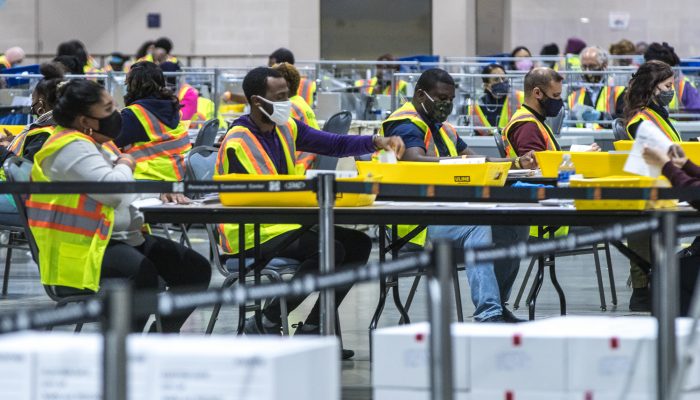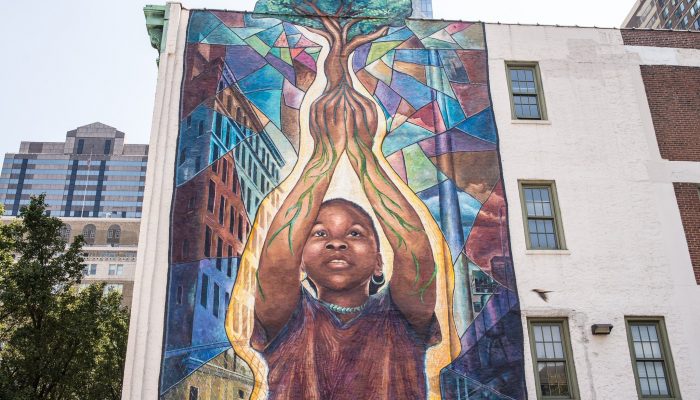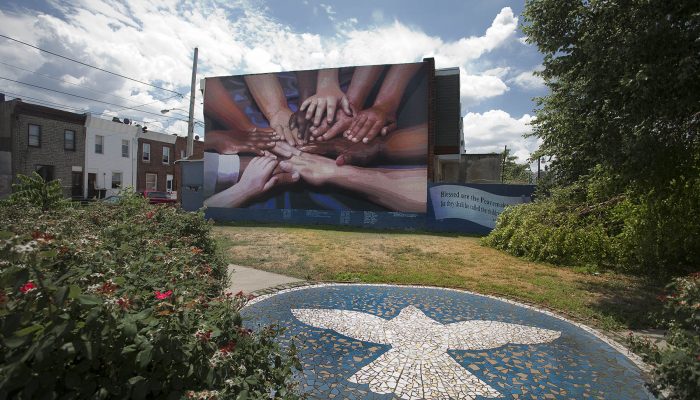Black History Month encourages us to recognize the contributions of Black Americans. Here in Philadelphia, we highlight achievements and movements—past and present—led by and for Black Philadelphians.
What started as a week-long recognition by historian Carter G. Woodson in 1926, Black History Month has grown to provide space each year to provide educational opportunities, reflection, and celebration—with each U.S. President formally designating the occasion since 1976.
In 2021, celebrating the contributions and achievements of Black Americans feels more necessary than ever.
As we look back on a year of COVID-19, mass civic uprisings and demonstrations in response to the publicized killings of Black people by police, a contentious election, and a tenuous transfer of power, we know that issues of racial discrimination and oppression still permeate everyday life—especially for Black Philadelphians.
Employees that identify as Black or African American represent 48.24 percent of the City workforce. For many Black government employees, we can be put in challenging positions.
As public servants, we represent a government and institutions that have created and contributed to the current gaps that many Black residents continue to face in obtaining wealth, accessing quality education, being healthy, and in interactions with our criminal justice system. The adverse outcomes and quality of life in many Black communities across the city reflect the enduring impact of a webbed history of redlining, police violence, and government-sanctioned de facto segregation.
Within our communities, neighborhoods, and homes, we are perceived as “the government,” and often held accountable for these outcomes and decisions.
History reveals long trajectories of problems unresolved and enduring struggle. A historic figure and set of circumstances set the course for these experiences and made Black representation in our City workforce possible. Sadie Tanner Mossell Alexander became the first Black woman enrolled at the University of Pennsylvania School of Law in 1924. Her experiences at Penn were marked by a struggle with discrimination from students and professors, yet she prevailed against these odds. She graduated with honors in 1927 and was the first Black woman to gain admission into the Pennsylvania Bar Association. Having pursued doctoral studies with Penn prior to this, Alexander was the first African American to hold both a Ph.D. and a J.D.
From 1928 to 1930 and again from 1934 to 1938, she was Assistant City Solicitor for the City of Philadelphia and formed a legal aid bureau to assist African Americans who could not afford lawyers.
In a campaign she led throughout the 1940s, the City of Philadelphia passed a ban on racial and religious discrimination in all municipal employment, services, and contracts in the City’s new Home Rule Charter, which voters adopted in April 1951.
The new City Charter was the first in the nation to include these anti-discrimination provisions and also provided for the establishment of a new City agency, the Philadelphia Commission on Human Relations (PCHR), to enforce the ban on discrimination.
While the Kenney Administration remains committed to dismantling the systems that contribute to this struggle, we believe that the only way to know where we’re going is to know where we’ve been. That’s why so many of us are passionate about using our roles within government to uproot racist systems that keep Black Philadelphians barred from opportunities.
Whether it’s by working to connect Black and brown communities to government to ensure their voices are heard and taken into decision making or building an infrastructure to embed racial equity as a governing principle in the City’s budgeting, community engagement, service delivery, and significant strategic initiatives—our work today is guided by recognizing and shedding light on shared history.
The recognition of this history and Alexander’s legacy is poignant as Black employees grapple with representing a government or institution that still causes harm to Black and brown communities to this very day.
Those who identify as Black or African American are represented throughout our City government: fire, police, engineers, spokespeople, 311 agents, building inspectors, social workers, and within an array of other roles. We’re represented in leadership across the Mayor’s Cabinet and Office, Philadelphia City Council, the First Judicial District, the District Attorney’s Office, City Commissioners, and other row offices tasked with managing the business of our city. We serve as leaders, decision makers, administrators, support staff, and more. We are oftentimes connected by a shared identity, experiences, and history.
Thus, many of us stand on the shoulders of Sadie Tanner Mossell Alexander in our service to the City—her steadfast determination and legacy of broken barriers are inspiring. We benefit from her work and struggle. She serves as a shining reminder that African Americans can wholly represent our community within government institutions and effect change through that service.



